Manchester United FC
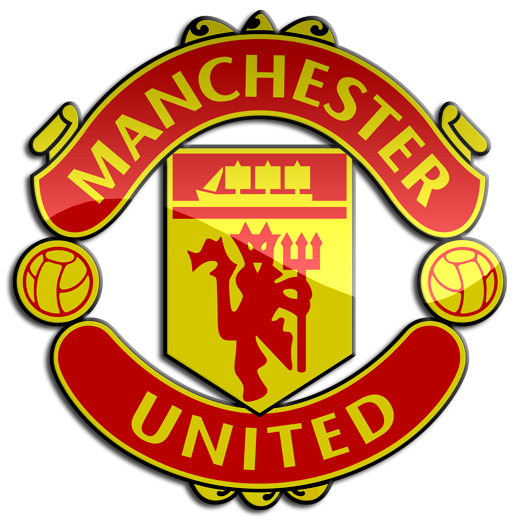
Details
- Name: Manchester United Football Club
Nickname: Red Devils / United
Founded: 1878 (as Newton Heath LYR FC)
Renamed: 1902 to Manchester United FC
Ground: Old Trafford
Ground capacity: 75,731
The History:
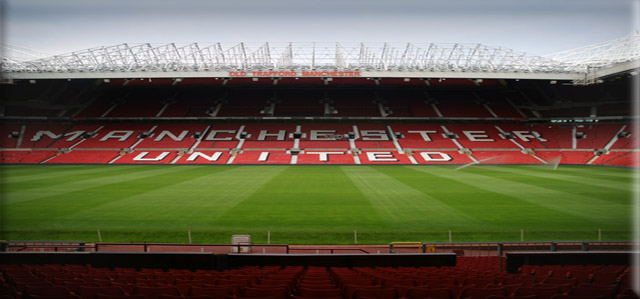
Early years (1878–1945)
Manchester United was formed in 1878 as Newton Heath LYR Football Club by the Carriage and Wagon department of the Lancashire and Yorkshire Railway (LYR) depot at Newton Heath. The
team initially played games against other departments and rail companies, but on 20 November 1880, they competed in their first recorded match; wearing the colours of the railway company – green
and gold – they were defeated 6–0 by Bolton Wanderers' reserve team.
By 1888, the club had become a founding member of The Combination, a regional football league.
Following the league's dissolution after only one season, Newton Heath joined the newly formed Football Alliance, which ran for three seasons before being merged with the Football League. This resulted
in the club starting the 1892–93 season in the First Division, by which time it had become independent of the rail company and dropped the "LYR" from its name. After two seasons, the club was relegated to the Second Division.
In January 1902, with debts of £2,670 – equivalent to £250,000 in 2014 – the club was served with a winding-up order. Captain Harry Stafford found four local businessmen, including John Henry
Davies (who became club president), each willing to invest £500 in return for a direct interest in running the club and who subsequently changed the name; on 24 April 1902, Manchester United was
officially born.
Under Ernest Mangnall, who assumed managerial duties in 1903, the team finished as Second Division runners-up in 1906 and secured promotion to the First Division, which they won
in 1908 – the club's first league title. The following season began with victory in the first ever Charity Shield and ended with the club's first FA Cup title. Manchester United won the First Division for the
second time in 1911, but at the end of the following season, Mangnall left the club to join Manchester City.
In 1922, three years after the resumption of football following the First World War, the club was relegated to the Second Division, where it remained until regaining promotion in 1925. Relegated
again in 1931, Manchester United became a yo-yo club, achieving its all-time lowest position of 20th place in the Second Division in 1934.
Following the death of principal benefactor John Henry
Davies in October 1927, the club's finances deteriorated to the extent that Manchester United would likely have gone bankrupt had it not been for James W. Gibson, who, in December 1931, invested
£2,000 and assumed control of the club. In the 1938–39 season, the last year of football before the Second World War, the club finished 14th in the First Division.
Busby years (1945–1969)
In October 1945, the impending resumption of football led to the managerial appointment of Matt Busby, who demanded an unprecedented level of control over team selection, player transfers and
training sessions.Busby led the team to second-place league finishes in 1947, 1948 and 1949, and to FA Cup victory in 1948. In 1952, the club won the First Division, its first league title for 41 years.
With an average age of 22, the media labelled the back-to-back title winning side of 1956 "the Busby Babes", a testament to Busby's faith in his youth players.
In 1957, Manchester United became the
first English team to compete in the European Cup, despite objections from The Football League, who had denied Chelsea the same opportunity the previous season. En route to the semi-final, which
they lost to Real Madrid, the team recorded a 10–0 victory over Belgian champions Anderlecht, which remains the club's biggest victory on record.
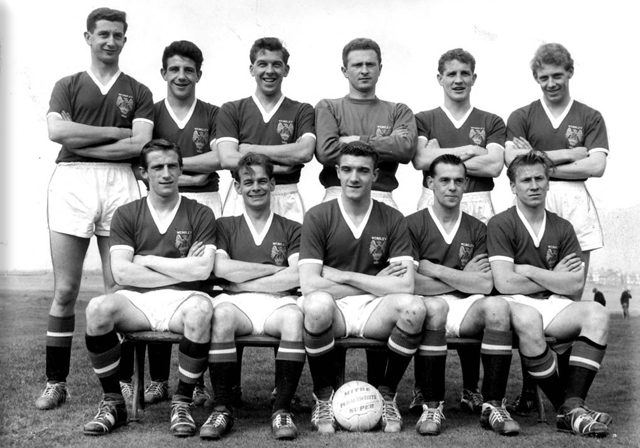
The following season, on the way home from a European Cup quarter-final victory against Red Star Belgrade, the aircraft carrying the Manchester United players, officials and journalists crashed
while attempting to take off after refuelling in Munich, Germany. The Munich air disaster of 6 February 1958 claimed 23 lives, including those of eight players – Geoff Bent, Roger Byrne, Eddie Colman,
Duncan Edwards, Mark Jones, David Pegg, Tommy Taylor and Billy Whelan – and injured several more.
Reserve team manager Jimmy Murphy took over as manager while Busby recovered from his injuries and the club's makeshift side reached the FA Cup final, which they lost to Bolton Wanderers.
In recognition of the team's tragedy, UEFA invited the club to compete in the 1958–59 European Cup alongside eventual League champions Wolverhampton Wanderers. Despite approval from the
FA, the Football League determined that the club should not enter the competition, since it had not qualified.
Busby rebuilt the team through the 1960s by signing players such as Denis Law and Pat
Crerand, who combined with the next generation of youth players – including George Best – to win the FA Cup in 1963. The following season, they finished second in the league, then won the title in
1965 and 1967. In 1968, Manchester United became the first English (and second British) club to win the European Cup, beating Benfica 4–1 in the final with a team that contained three European
Footballers of the Year: Bobby Charlton, Denis Law and George Best. Matt Busby resigned as manager in 1969 and was replaced by the reserve team coach, former Manchester United player Wilf
McGuinness.
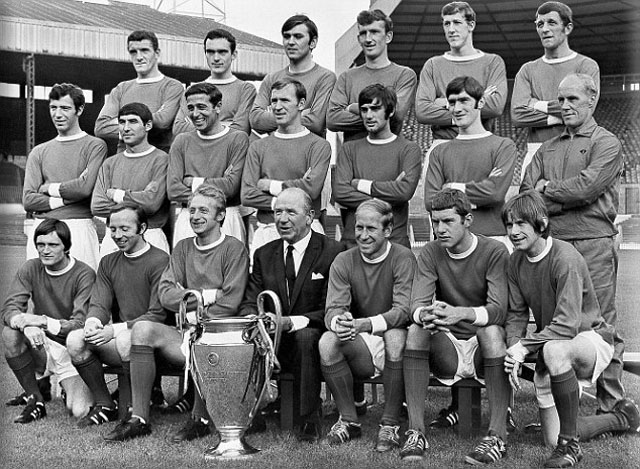
1968 European Cup winners
Back row: Billy Foulkes, John Aston, Jimmy Rimmer, Alex Stepney, Alan Gowling, David Herd. Middle row: David Sadler, Tony Dunne, Shay Brennan, Pat Crerand, George Best, Frances Burns, Jack Crompton. Front row: Jimmy Ryan, Nobby Stiles, Denis Law, Matt Busby, Bobby Charlton, Brian Kidd and John Fitzpatrick
1969–1986
Following an eighth-place finish in the 1969–70 season and a poor start to the 1970–71 season, Busby was persuaded to temporarily resume managerial duties, and McGuinness returned to his
position as reserve team coach. In June 1971, Frank O'Farrell was appointed as manager, but lasted less than 18 months before being replaced by Tommy Docherty in December 1972.
Docherty
saved Manchester United from relegation that season, only to see them relegated in 1974; by that time the trio of Best, Law, and Charlton had left the club. The team won promotion at the first attempt
and reached the FA Cup final in 1976, but were beaten by Southampton. They reached the final again in 1977, beating Liverpool 2–1. Docherty was dismissed shortly afterwards, following the
revelation of his affair with the club physiotherapist's wife.
Dave Sexton replaced Docherty as manager in the summer of 1977. Despite major signings, including Joe Jordan, Gordon McQueen, Gary Bailey, and Ray Wilkins, the team failed to achieve any
significant results; they finished in the top two in 1979–80 and lost to Arsenal in the 1979 FA Cup Final. Sexton was dismissed in 1981, even though the team won the last seven games under his
direction.
He was replaced by Ron Atkinson, who immediately broke the British record transfer fee to sign Bryan Robson from West Bromwich Albion. Under Atkinson, Manchester United won the FA
Cup twice in three years – in 1983 and 1985. In 1985–86, after 13 wins and two draws in its first 15 matches, the club was favourite to win the league, but finished in fourth place. The following season,
with the club in danger of relegation by November, Atkinson was dismissed.
Ferguson years (1986–2013)
Alex Ferguson and his assistant Archie Knox arrived from Aberdeen on the day of Atkinson's dismissal, and guided the club to an 11th-place finish in the league. Despite a second-place finish in
1987–88, the club was back in 11th place the following season. Reportedly on the verge of being dismissed, victory over Crystal Palace in the 1990 FA Cup Final replay (after a 3–3 draw) saved
Ferguson's career. The following season, Manchester United claimed its first Cup Winners' Cup title and competed in the 1991 UEFA Super Cup, beating European Cup holders Red Star Belgrade
1–0 in the final at Old Trafford.
A second consecutive League Cup final appearance followed in 1992, in which the team beat Nottingham Forest 1–0 at Wembley. In 1993, the club won its first league
title since 1967, and a year later, for the first time since 1957, it won a second consecutive title – alongside the FA Cup – to complete the first "Double" in the club's history.
In the 1998–99 season, Manchester United became the first team to win the Premier League, FA Cup and UEFA Champions League – "The Treble" – in the same season. Losing 1–0 going into
injury time in the 1999 UEFA Champions League Final, Teddy Sheringham and Ole Gunnar Solskjær scored late goals to claim a dramatic victory over Bayern Munich, in what is considered one of the
greatest comebacks of all time. The club also won the Intercontinental Cup after beating Palmeiras 1–0 in Tokyo. Ferguson was subsequently knighted for his services to football.
Manchester United won the league again in the 1999–2000 and 2000–01 seasons.
The team finished third in 2001–02, before regaining the title in 2002–03. They won the 2003–04 FA Cup, beating
Millwall 3–0 in the final at the Millennium Stadium in Cardiff. In the 2005–06 season, Manchester United failed to qualify for the knockout phase of the UEFA Champions League for the first time in over a
decade, but recovered to secure a second-place league finish and victory over Wigan Athletic in the 2006 Football League Cup Final. The club regained the Premier League in the 2006–07 and
2007–08 seasons, and completed the European double by beating Chelsea 6–5 on penalties in the 2008 UEFA Champions League Final in Moscow's Luzhniki Stadium.
Ryan Giggs made a record 759th appearance for the club in this game, overtaking previous record holder Bobby Charlton. In December 2008, the club won the 2008 FIFA Club World Cup and followed this with the 2008–09
Football League Cup, and its third successive Premier League title. That summer, Cristiano Ronaldo was sold to Real Madrid for a world record £80 million. In 2010, Manchester United defeated Aston
Villa 2–1 at Wembley to retain the League Cup, its first successful defence of a knockout cup competition.
After finishing as runner-up to Chelsea in the 2009–10 season, United achieved a record 19th league title in 2010–11, securing the championship with a 1–1 away draw against Blackburn Rovers on
14 May 2011. This was extended to 20 league titles in 2012–13, securing the championship with a 3–0 home win against Aston Villa on 22 April 2013.
2013–present
On 8 May 2013, Ferguson announced that he was to retire as manager at the end of the football season, but would remain at the club as a director and club ambassador. The club announced the
next day that Everton manager David Moyes would replace him from 1 July, having signed a six-year contract. Ryan Giggs took over as interim player-manager 10 months later on 22 April 2014, when
Moyes was sacked after a poor season in which the club failed to defend their Premier League title and failed to qualify for the UEFA Champions League for the first time since 1995–96.
They also failed to qualify for the Europa League, meaning that it was the first time Manchester United hadn't qualified for a European competition since 1990. On 19 May 2014, it was confirmed that Louis van Gaal
would replace Moyes as Manchester United manager on a three-year deal, with Giggs as his assistant. Malcolm Glazer, the patriarch of the Glazer family that owns the club, died on 28 May 2014.
Although Van Gaal's first season saw United once again qualify for the Champions League through a fourth-place finish in the Premier League, his second season saw United go out of the same tournament in the group stage.
United also fell behind in the title race for the third consecutive season, finishing in 5th place, in spite of several expensive signings during Van Gaal's tenure. However, that same season, Manchester United won the FA Cup for a 12th time, putting them on par with Arsenal in total FA Cup wins.
Despite this victory, Van Gaal was sacked as manager just two days later, with José Mourinho appointed in his place on 27th May 2016, signing a three year contract.
Mourinho was sacked on 18 December 2018 with United in sixth place, 19 points behind league leaders Liverpool and 11 points outside the Champions League places. Former United player and manager of the Norwegian side Molde Ole Gunnar Solskjær was appointed caretaker manager the next day. On 21st November 2021, United confirmed that Ole had left his role. Michael Carrick would take charge of the team for forthcoming games, while the club looks to appoint an interim manager to the end of the 2021-22 season.
That Interim manager came in the form of Ralph Rangnick, and the club made the announcement on 29th November 2021. Following this period of Interim, Ralf and the club agreed that he would continue in a consultancy role for a further two years.
On 21 April 2022, Ten Hag was appointed as manager of Manchester United starting from end of the 2021–22 season until June 2025, with the option of extending for a further year.
2016-17 season
On Sunday August 7th 2016, Manchester United beat Leicester City 2-1 to collect their 21st Charity Shield.
Then, on Sunday 26th February 2017, United overcame Southampton 3-2 to win their 5th League Cup.
On Wednesday 24th May 2017, after winning the 2016–17 UEFA Europa League, United became the fifth club in history to have won the "European Treble" of European Cup/UEFA Champions League, European Cup Winners' Cup/UEFA Cup Winners' Cup, and UEFA Cup/UEFA Europa League after Juventus, Ajax, Bayern Munich and Chelsea.
Erik ten Hag
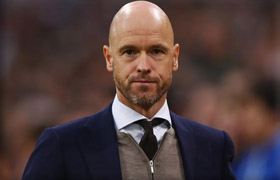
The Facts
Manchester United Football Club is an English professional football club, based in Old Trafford, Greater Manchester that plays in the Premier League. Founded as Newton Heath LYR Football Club in 1878, the club changed its name to Manchester United in 1902 and moved to Old Trafford in 1910 and is one of the most successful clubs in English football.
Manchester United have won the most League titles (20) of any English club, a joint record 11 FA Cups, four League Cups, and a record twenty FA Community Shields. The club has also won three European Cups, one UEFA Cup Winners' Cup, one UEFA Super Cup, one Intercontinental Cup, and one FIFA Club World Cup. In 1998–99, the club won a continental treble of the Premier League, the FA Cup and the UEFA Champions League.
The 1958 Munich air disaster claimed the lives of eight players. In 1968, under the management of Matt Busby, Manchester United was the first English football club to win the European Cup. Alex Ferguson won 28 major honours, and 38 in total, from November 1986 to May 2013, when he announced his retirement after 26 years at the club.
On 19 May 2014, Louis van Gaal was appointed as the club's new manager after Ferguson's successor David Moyes was sacked after only 10 months in charge, with the club's record appearance-maker, Ryan Giggs, appointed as his assistant after a brief period as caretaker manager.
Manchester United is the third-richest football club in the world for 2011–12 in terms of revenue, with an annual revenue of €395.9 million, and the world's second most valuable sports team in 2013, valued at $3.165 billion. It is one of the most widely supported football teams in the world.
After being floated on the London Stock Exchange in 1991, the club was purchased by Malcolm Glazer in May 2005 in a deal valuing the club at almost £800 million, after which the company was taken private again. In August 2012, United made an initial public offering on the New York Stock Exchange.
For further information check out their Official website
Notable Players
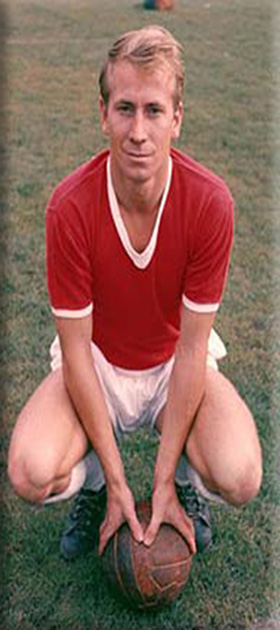
Bobby Charlton - 1956 to 1973
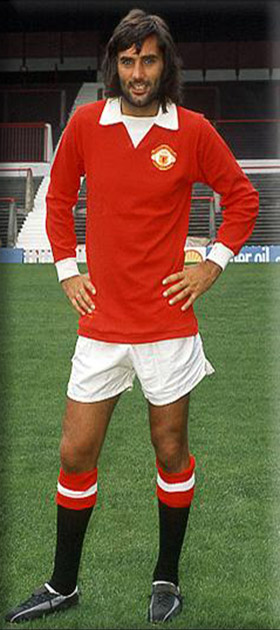
George Best - 1963 to 1974
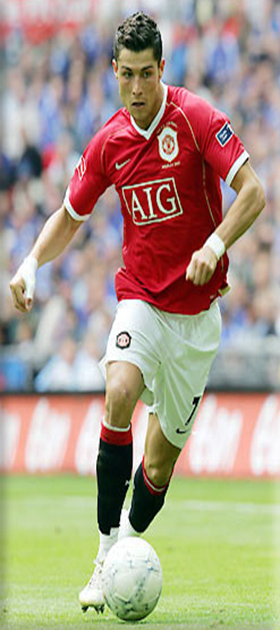
Cristiano Ronaldo - 2003 to 2009
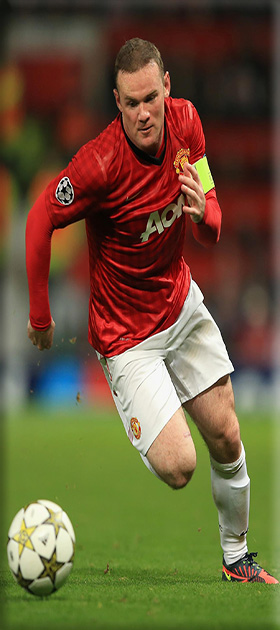
Wayne Rooney - 2004 to 2017
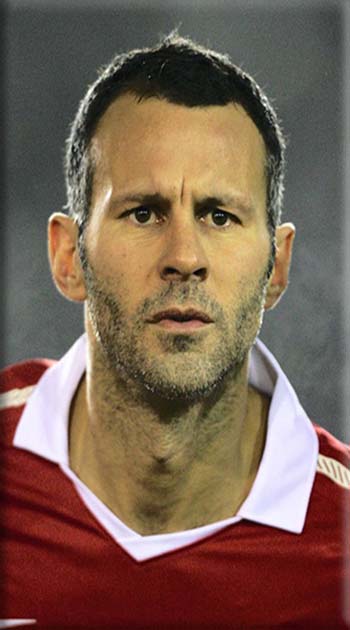
Ryan Giggs - 1990 - 2014

Munich Air Disaster
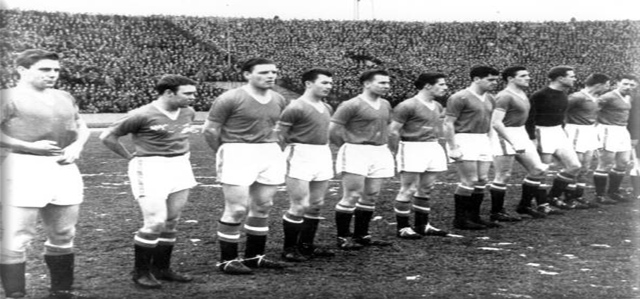
The last line-up of the Busby Babes - 5th February 1958 - Belgrade. Edwards, Colman, Jones, Morgans, Charlton, Viollet, Taylor, Foulkes, Gregg, Scanlon, Byrne.
The Munich air disaster occurred on 6 February 1958 when British European Airways flight 609 crashed on its third attempt to take off from a slush-covered runway at Munich-Riem Airport, West Germany. On the plane was the Manchester United football team, nicknamed the "Busby Babes", along with supporters and journalists. 20 of the 44 on the aircraft died. The injured, some unconscious, were taken to the Rechts der Isar Hospital in Munich where three more died, resulting in 23 fatalities with 21 survivors.
The football team was returning from a European Cup match in Belgrade, Yugoslavia (now Serbia) against Red Star Belgrade. The flight stopped to refuel in Munich because a non-stop flight from Belgrade to Manchester was out of the "Elizabethan" class Airspeed Ambassador aircraft's range. After refuelling, pilots James Thain and Kenneth Rayment twice abandoned take-off because of boost surging in the left engine. Fearing they would get too far behind schedule, Captain Thain rejected an overnight stay in Munich in favour of a third take-off attempt. By then, snow was falling, causing a layer of slush at the end of the runway. After the aircraft hit the slush, it ploughed through a fence beyond the end of the runway and the left wing was torn off after hitting a house. Fearing the aircraft might explode, Thain began evacuating passengers while Manchester United goalkeeper Harry Gregg helped pull survivors from the wreckage.
An investigation by West German airport authorities originally blamed Thain, saying he did not de-ice the aircraft's wings, despite eyewitness statements to the contrary. It was later established that the crash was caused by slush on the runway, which slowed the plane too much to take off. Thain was cleared in 1968, ten years after the incident.
Manchester United were trying to become the third club to win three successive English league titles; they were six points behind League leaders Wolverhampton Wanderers with 14 games to go. They also held the Charity Shield and had just advanced into their second successive European Cup semi-final. The team had not been beaten for 11 matches.
American news reel footage reporting the crash
Crash
Thain had flown the "Elizabethan" class Airspeed Ambassador (registration G-ALZU) to Belgrade but handed the controls to Rayment for the return. At 14:19 GMT, the control tower at Munich was told the plane was ready to take off and gave clearance for take-off, expiring at 14:31. Rayment abandoned the take-off after Thain noticed the port boost pressure gauge fluctuating as the plane reached full power and the engine sounded odd while accelerating. A second attempt was made three minutes later, but called off 40 seconds into the attempt because the engines were running on an over-rich mixture, causing them to over-accelerate, a common problem for the Elizabethan. After the second failure, passengers retreated to the airport lounge. By then, it had started to snow heavily, and it looked unlikely that the plane would be making the return journey that day. Manchester United's Duncan Edwards sent a telegram to his landlady in Manchester. It read: "All flights cancelled, flying tomorrow. Duncan."
Thain told the station engineer, Bill Black, about the problem with the boost surging in the port engine, and Black suggested that since opening the throttle more slowly had not worked, the only option was to hold the plane overnight for retuning. Thain was anxious to stay on schedule and suggested opening the throttle even more slowly would suffice. This would mean that the plane would not achieve take-off velocity until further down the runway, but with the runway almost 2 kilometres (1.2 mi) long, he believed this would not be a problem. The passengers were then called back to the plane 15 minutes after leaving it.
A few of the players were not confident fliers, particularly Liam Whelan, who said, "This may be death, but I'm ready". Others, including Duncan Edwards, Tommy Taylor, Mark Jones, Eddie Colman and Frank Swift, moved to the back of the plane, believing it safer. Once everyone was on board, Thain and Rayment got the plane moving again at 14:56. At 14:59, they reached the runway holding point, where they received clearance to line up ready for take-off. On the runway, they made final cockpit checks and at 15:02, they were told their take-off clearance would expire at 15:04. The pilots agreed to attempt take-off, but that they would watch the instruments for surging in the engines. At 15:03, they told the control tower of their decision.
Rayment moved the throttle forward slowly and released the brakes; the plane began to accelerate, and radio officer Bill Rodgers radioed the control tower with the message "Zulu Uniform rolling". Throwing up slush as it gathered speed, Thain called out the plane's velocities in 10-knot increments. At 85 knots, the port engine began to surge again, and he pulled back marginally on the port throttle before pushing it forward again. Once the plane reached 117 knots (217 km/h), he announced "V1", at which it was no longer safe to abort take-off, and Rayment listened for the call of "V2" (119 knots (220 km/h)), the minimum required to get off the ground. Thain expected the speed to rise, but it fluctuated around 117 knots before suddenly dropping to 112 knots (207 km/h), and then 105 knots (194 km/h). Rayment shouted "Christ, we won't make it!", as Thain looked up to see what lay ahead.
The plane skidded off the end of the runway, crashed into the fence surrounding the airport and across a road before its port wing was torn off as it caught a house, home to a family of six. The father and eldest daughter were away and the mother and the other three children escaped as the house caught fire. Part of the plane's tail was torn off before the left side of the cockpit hit a tree. The right side of the fuselage hit a wooden hut, inside which was a truck filled with tyres and fuel, which exploded. Twenty passengers died on board, and three people died later.
On seeing flames around the cockpit, Thain feared that the aircraft would explode and told his crew to evacuate the area. The stewardesses, Rosemary Cheverton and Margaret Bellis, were the first to leave through a blown-out emergency window in the galley, followed by radio officer Bill Rodgers. Rayment was trapped in his seat by the crumpled fuselage and told Thain to go without him. Thain clambered out of the galley window. On reaching the ground, he saw flames growing under the starboard wing, which held 500 imperial gallons (2,300 L) of fuel. He shouted to his crew to get away and climbed back into the aircraft to retrieve two handheld fire extinguishers, stopping to tell Rayment he would be back when the fires had been dealt with.
Meanwhile, in the cabin, goalkeeper Harry Gregg was regaining consciousness, thinking that he was dead. He felt blood on his face and "didn't dare put his hand up. He thought the top of his head had been taken off, like a hard boiled egg." Just above him, light shone into the cabin, so Gregg kicked the hole wide enough for him to escape. He also managed to save some passengers.
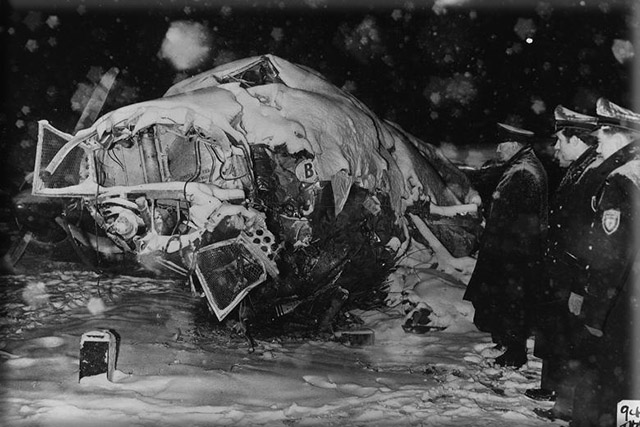
Wreckage of the Airspeed Ambassador plane that carried the Manchester United players
Investigation
Although the crash was originally blamed on pilot error, it was subsequently found to have been caused by slush towards the end of the runway, causing deceleration of the aircraft and preventing safe flying speed. During take-off, the aircraft had reached 117 knots (217 km/h), but, on entering the slush, dropped to 105 knots (194 km/h), too slow to leave the ground, with not enough runway to abort the take-off. Aircraft with tail-wheel undercarriages had not been greatly affected by slush, due to the geometry of these undercarriages in relation to the aircraft's centre of gravity, but newer types, such as the Ambassador, with nose wheel landing-gear and the main wheels behind the centre of gravity, were found to be vulnerable. The accident resulted in the imposition of operating limits for the amount of slush build-up permitted on runways.
Despite this conclusion, the German airport authorities (who were legally responsible for the state of the airport's runways, but generally unaware of the danger of slush on runways for aircraft like the Ambassador) took legal action against Captain Thain, as the one pilot who had survived the crash. They claimed that he had taken off without deicing the wings and that responsibility for the accident was his alone, despite several witnesses stating that this was not so.
The basis of the German authorities' case relied on the icy condition of the wings hours after the crash and a photograph of the aircraft (published in several newspapers) taken shortly before take-off, that appeared to show snow on the upper wing surfaces. When the original negative was examined, however, no snow or ice could be seen, the "snow" in the original having been due to the sun reflecting off the wings, which was clarified when examining the negative rather than the published pictures which had been produced from a copy negative. The witnesses were not called to the German inquiry and proceedings against Thain dragged on until 1968, when he was finally cleared of any responsibility for the crash. As the official cause, British authorities recorded a build-up of melting snow on the runway which prevented the Elizabethan from reaching the required take-off speed. Thain, having been dismissed by BEA shortly after the accident and never re-engaged, retired and returned to run his poultry farm in Berkshire. He died of a heart attack at the age of 54, in August 1975.
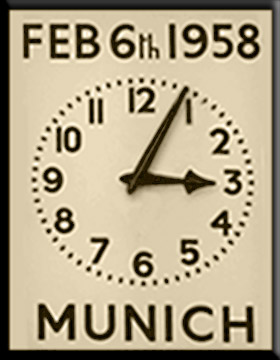 Aftermath
Aftermath
Seven of Manchester United's players died immediately, and Duncan Edwards died from his injuries on 21 February at the Rechts der Isar Hospital in Munich. Johnny Berry and Jackie Blanchflower were both injured so severely that they never played again. Matt Busby was seriously injured and had to stay in hospital for more than two months after the crash, and was read his Last Rites twice. After being discharged from hospital, he went to Switzerland to recuperate in Interlaken. At times, he felt like giving up football entirely, until he was told by his wife, Jean, "You know Matt, the lads would have wanted you to carry on." That statement lifted Busby from his depression, and he returned by land to Manchester, before watching his team play in the 1958 FA Cup Final.
Meanwhile, there was speculation that the club would fold, but a threadbare United team completed the 1957–58 season, with Busby's assistant Jimmy Murphy standing in as manager; he had not travelled to Belgrade as he was in Cardiff managing the Welsh national team at the time. A team largely made up of reserve and youth team players beat Sheffield Wednesday 3–0 in the first match after the disaster. The programme for that match showed simply a blank space where each United player's name should have been. Following the loss of so many players in the crash, United were desperate to find replacements with experience, so Murphy turned to players like Ernie Taylor (signed for £8,000 from Blackpool) and Stan Crowther, the Aston Villa wing half who had played against United in the 1957 FA Cup Final. Three players, Derek Lewin, Bob Hardisty and Warren Bradley, were loaned to United by non-League club Bishop Auckland.
There were changes in the backroom staff at the club too, following the deaths of secretary Walter Crickmer and coaches Tom Curry and Bert Whalley. United goalkeeper Les Olive, still registered as a player at the time of the disaster, retired from playing and took over from Crickmer as club secretary, while another former United goalkeeper, Jack Crompton, took over coaching duties after United chairman Harold Hardman had negotiated with Crompton's then-employers Luton Town for his release.
United only won one league game after the crash, causing their title challenge to collapse and they fell to ninth place in the league. They did manage to reach the final of the FA Cup, however, losing 2–0 to Bolton Wanderers, and even managed to beat Milan at Old Trafford in the semi-finals of the European Cup, only to lose 4–0 at the San Siro. Real Madrid, who went on to win the trophy for the third year running, suggested that Manchester United be awarded the trophy for that year – a suggestion supported by Red Star Belgrade – but this failed to materialise.
Busby resumed managerial duties the next season (1958–59), and eventually built a second generation of Busby Babes, including George Best and Denis Law, that ten years later won the European Cup, beating Benfica. Bobby Charlton and Bill Foulkes were the only two crash survivors who lined up in that team.
A fund for dependents of victims of the crash was established in March, and chaired by the Chairman of the FA, Arthur Drewry. The fund had raised £52,000 (£1.06 million as of 2014) by the time of its disbursement in October 1958.
For more detailed information please refer to Wikipedia - The Munich Air Disaster
Honours
- First Division (until 1992) and Premier League
- Winners (20): 1907–08, 1910–11, 1951–52, 1955–56, 1956–57, 1964–65, 1966–67, 1992–93, 1993–94, 1995–96, 1996–97, 1998–99, 1999–2000, 2000–01, 2002–03, 2006–07, 2007–08, 2008–09, 2010–11, 2012–13
- FA Cup
- Winners (12): 1908–09, 1947–48, 1962–63, 1976–77, 1982–83, 1984–85, 1989–90, 1993–94, 1995–96, 1998–99, 2003–04, 2015–16
- League Cup
- Winners (5): 1991–92, 2005–06, 2008–09, 2009–10, 2016–17
- FA Community Shield (FA Charity Shield before 2002)
- Winners (21): 1908, 1911, 1952, 1956, 1957, 1965*, 1967*, 1977*, 1983, 1990*, 1993, 1994, 1996, 1997, 2003, 2007, 2008, 2010, 2011, 2013, 2016
- European Cup Winners
- Winners (3): 1967–68, 1998–99, 2007–08
- European Cup Winners Cup
- Winners (1): 1990–91
- UEFA Europa League
- Winners (1): 2016-17
- European Super Cup
- Winners (1): 1991
- Inter-Continental Cup
- Winners (1): 1999
- Fifa Club World Cup
- Winners (1): 2008




















